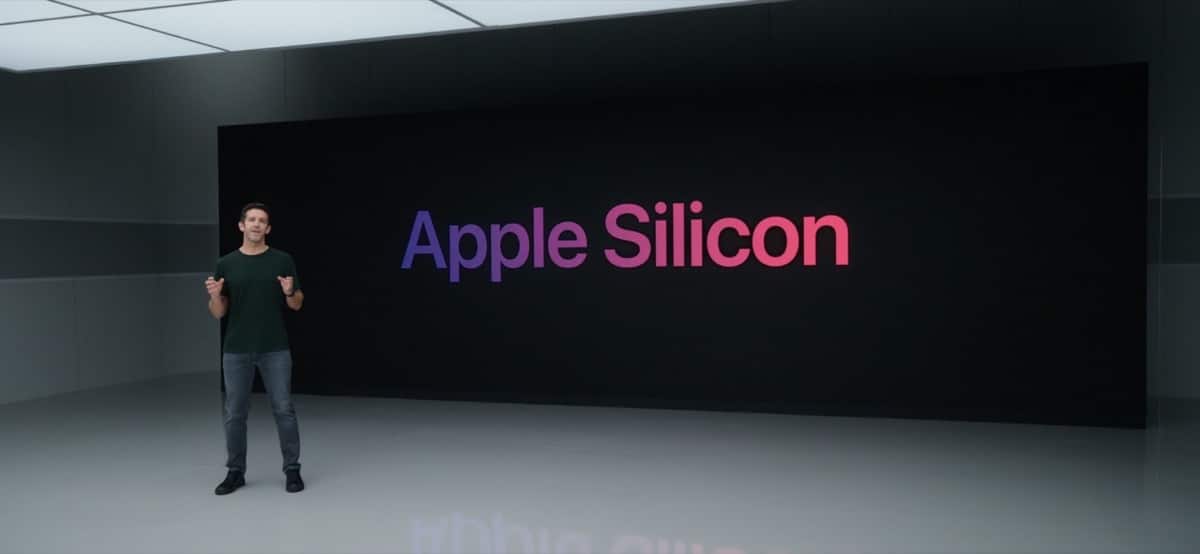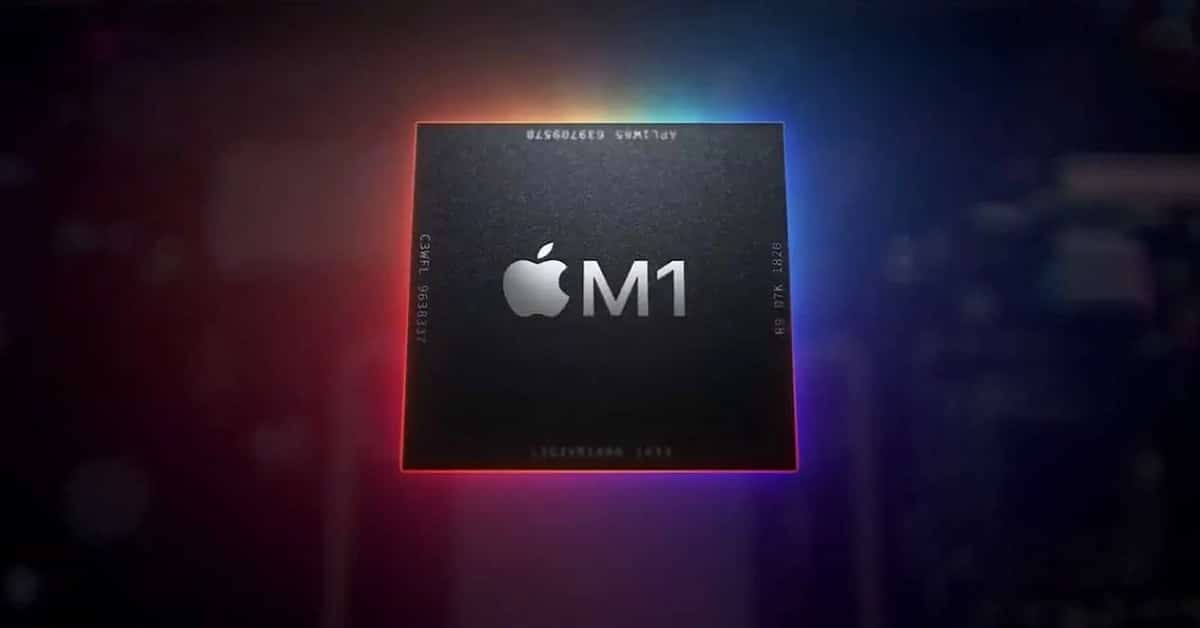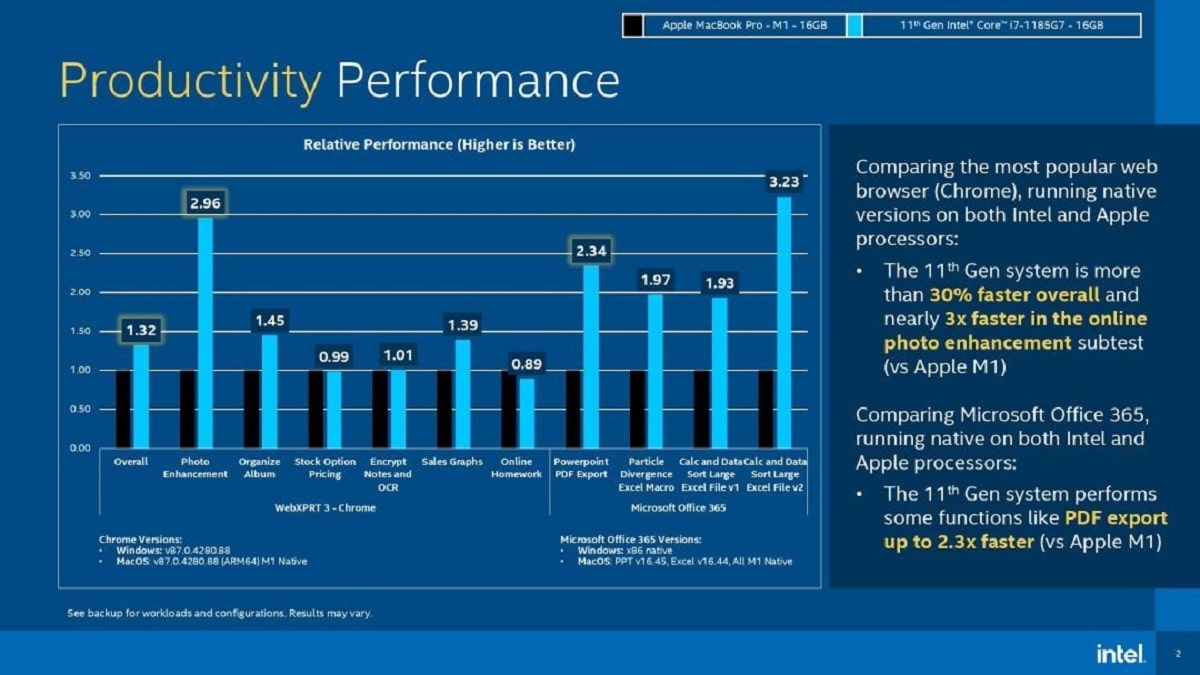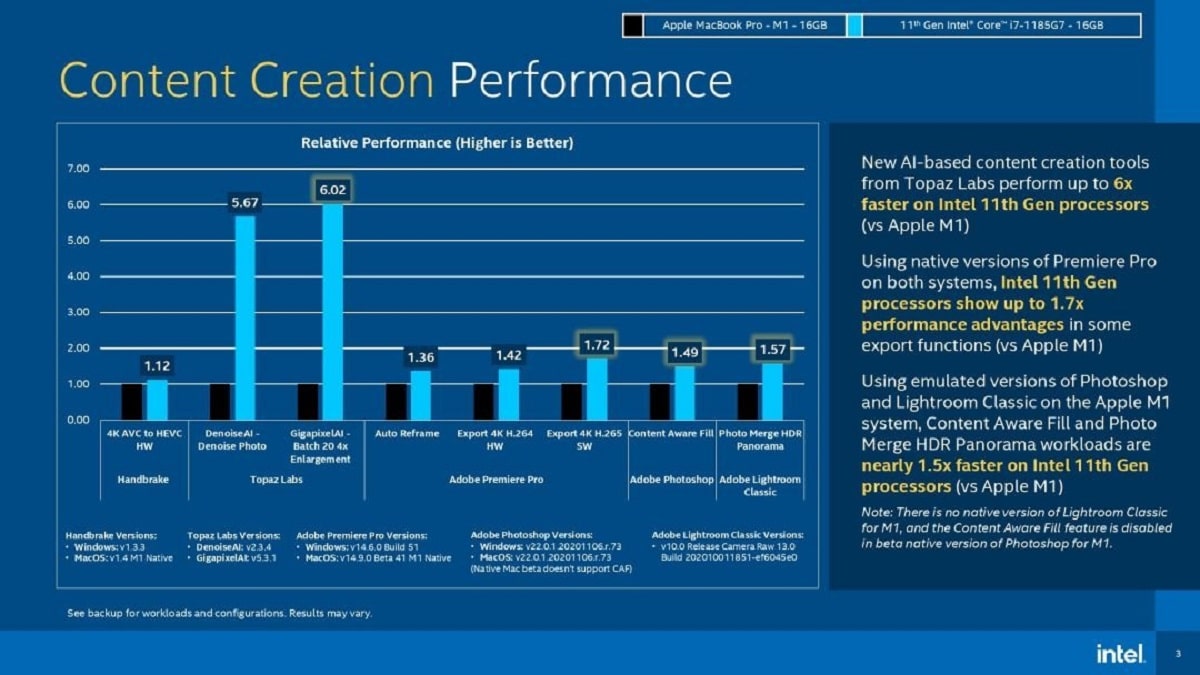
With the arrival of Apple Silicon, Apple abandoned (not entirely) Intel processors and chip. A true advance that also represents a great saving for the apple company and logically represents a great loss for Intel. If we add to this that Apple Silicon seems to be a real beast compared to other processors, we have a clear winner. But Intel defends itself like a belly cat and claims that it still has some processors faster than Apple's newest. But things are not as they claim.
Intel processor compares to Apple Silicon but is no better than this

With the arrival of Apple Silicon, Intel has lost one of its best buyers. Apple will no longer do business with this company, although for now there will still be computers with its processors. But the trend, as Tim Cook warned, is to eliminate external processors from the lives of apple users. In this way Intel will stay out of the Mac market. Logically that does not want it and continues fighting to show the world that it is still at stake.
It has launched a test comparison of one of its processors with that of Apple Silicon claiming that there are improvements in the first that are capable of beating the second. However, the tests are not real at all and therefore the conclusions reached are not entirely true. Apple Silicon is still the best and the hegemony of Intel is coming (you could see it coming) to an end. It is not that it disappears, that would be practically impossible, but there is more variety to choose from.
Testing by Intel states that compare a 13-inch MacBook Pro with M1 and 16 gigabytes of memory to an Intel Core i7-1185G7 with four cores, eight threads and a maximum clock speed of 4,8 GHz, supported by 16 GB of memory. In the images you can see how in a general way they seem to show the Intel chip as comparable or superior to the M1 in various tasks, although with important warnings. For starters, the benchmarks use Intel's "real world usage guide" tests, a series of tests that does not appear to be performed normally by most other testers.

The results shown by Intel indicate that its chip is "over 30% faster overall and almost 3 times faster in the online photo enhancement subtest" on M1, while "some features like PDF export" on Office 365 are "up to 2.3 times faster." The tests seem to completely avoid the use of transcoding hardware-based on the M1, while using Intel's QuickSync hardware routines for Windows testing.
Despite Apple's focus on machine learning assistance in the M1, Intel tries to fight the strange claim that its chip is 6 times faster for Topaz Labs' test than the M1. In Premiere tests, Intel was reportedly 1.7 times faster, while Photoshop and Lightroom Classic tests ddepended on the Rosetta 2 translation for compatibility they resulted in speeds "nearly 1.5 times faster" on Intel's.
Intel also claimed that the M1 failed to perform eight of the 25 tests it performed. These errors included relatively simple tasks, such as "Switch to calendar in Outlook" or "Start video conference" in Zoom. Likewise, Intel claims that the battery life is 10 hours and 12 minutes in different test conditions.

If we join these comparisons that corroborate the saying (comparisons are hateful) to the announcement that Microsoft launched on its hybrid between Tablet and PC, we have a true strategy of going against the best. That's what it looks like because the benchmarks are not real world nor have they used common tools. So we have to say that we have a wounded animal trying to defend its kingdom, but now there is a new alpha male from the processors and that one is owned by Apple.